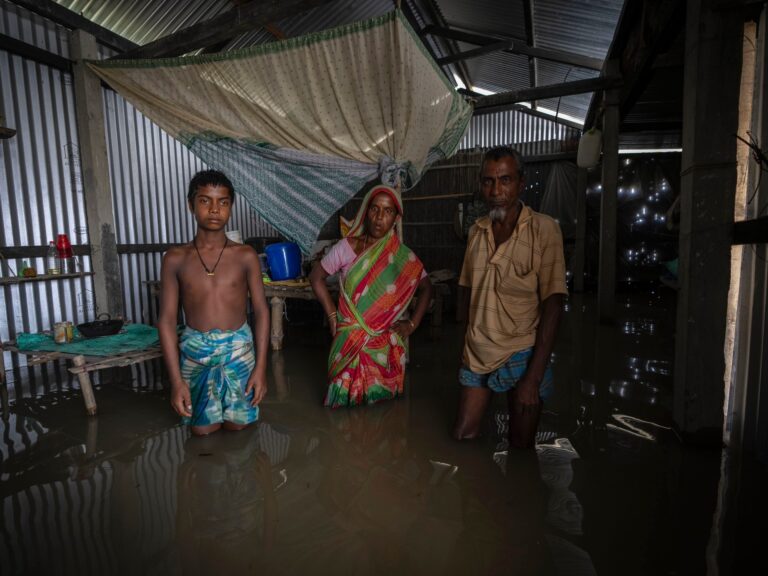Yaad Ali fears the arrival of the rainy season this year.
The 56-year-old farmer from the northeastern Indian state of Assam lives with his wife and son on the island of Sandahkhaiti on the Brahmaputra River.
The island, like 2,000 other islands on the river, is flooding with increasing ferocity and unpredictability, as human-caused climate change makes rains heavier and more erratic in the region.
The family moves away every time there is a flood and returns home every dry season.
Ali said area politicians have promised relief, including during the current election, but little has changed for his family. For now, they have to make do with being moved around for much of the year.
“We need some sort of permanent solution,” Ali said. “In recent years, it is only shortly after we have recovered from flood damage that we have to be prepared for another flood.”
Permanent land in a safer part of the state may be the only solution to their problems, he said. And even though local governments have talked about it, only a few river island residents have been offered land rights in the state.
When The Associated Press met Ali and his family last year, they were moving because of incessant rains that had flooded their home island. Today, during the dry season, Ali and his family grow chili peppers, corn and a few other vegetables on their small farm on the island.
“No one cares about our problems”
Like most other islanders, agriculture is their livelihood: around 240,000 people in the state’s Morigaon district – where some of the river islands, known as Chars, are located – depend on fishing and from the sale of products such as rice, jute and island vegetables. their small farms.
When it rains, the family stays as long as they can, living in knee-deep water inside their small hut, sometimes for days; cook, eat and sleep, even if the river water rises. But sometimes the water engulfs their house, forcing them to flee with their belongings.
“We leave everything and try to find higher ground or settle in the nearest relief camp,” Monuwara Begum, Ali’s wife, said last year. The relief camps are unsanitary and there is never enough space or food, Ali said, and “sometimes we only get rice and salt for days.”
But when the weather is dry, the family benefits from a temporary respite. They return home, tend their farms and can earn a living by selling the produce they harvest.
India, and the state of Assam in particular, is considered one of the world’s most vulnerable regions to climate change due to more intense rainfall and flooding, according to a 2021 report by the Council of Energy, Environment and Water, a climate organization based in New Delhi. thinking group.
Like many other residents of Chars, Ali and his family cannot afford to move permanently and have reconciled themselves to their fate of coming and going back home.
“No one cares about our problems,” Ali said. “All political parties promise to solve the flood problems, but after the elections no one cares.”
“We have to manage here somehow,” he said.


